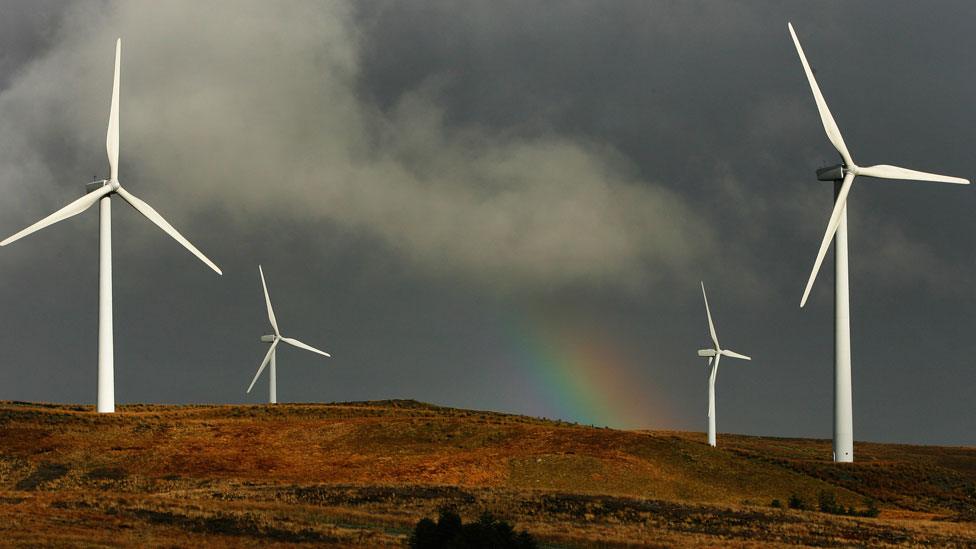Renewable energy projects 'stopped in their tracks'
- Published
Drone footage of Pen-y-Cymoedd wind farm
Large parts of the renewable energy sector in Wales have been "decimated" by policy changes at Westminster, the UK Government has been told.
In a statement, 10 leading green energy and countryside bodies backed Welsh Government calls for more support.
Energy Secretary Lesley Griffiths said the bulk of UK investment in renewables was now going to projects outside Wales.
The UK Government said it had invested more £52bn in renewables since 2010.
Powers of consent for renewable energy schemes up to 350MW are devolved to Cardiff Bay. But control over the subsidies paid out to help get new schemes off the ground remains with Westminster.
Changes to the financial support available were made in 2015, in response to the falling cost of certain technologies.
Onshore wind and solar developers are now excluded from competing in the UK Government's subsidy auctions, known as Contracts for Difference.

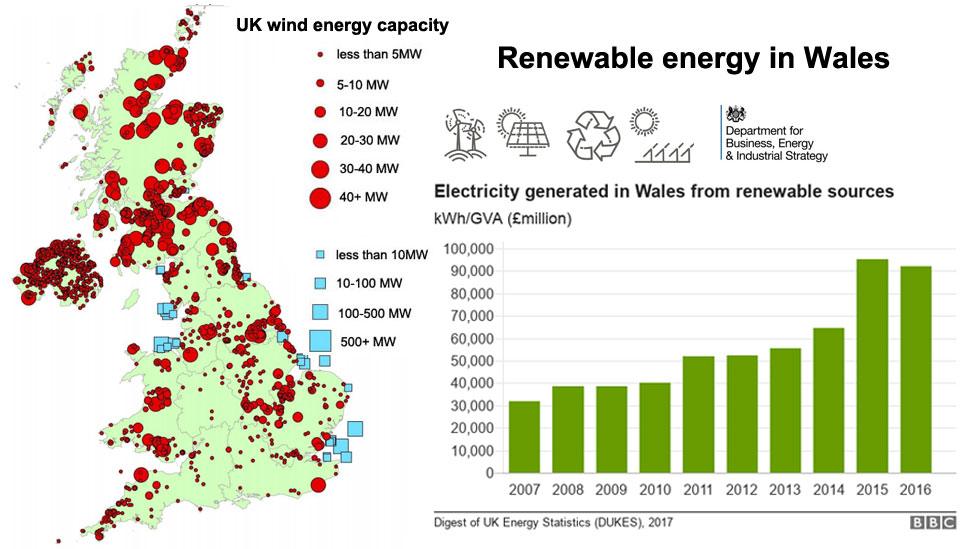

Ministers in Westminster said they wanted to see established technologies operating without subsidy, which is paid from a levy on consumers' energy bills, and would rather focus support on new and fledgling schemes.
But the Welsh Government said "the rapid changes" had had a significant impact on the renewable energy sector in Wales, arguing that onshore wind and solar provided the "biggest opportunity" here.
The public statement is backed by the environmental regulator Natural Resources Wales, the organisation which represents councils the WGLA, and the Institute of Welsh Affairs think-tank.
The National Trust, the landowners' union CLA Cymru, the Centre for Alternative Technology and industry bodies Renewable UK, Awel Co-op, Sirius Renewable Energy and Community Energy Wales are also named.
Ms Griffiths said "potentially valuable developments to Wales (had been) stopped in their tracks".
"In 2015 alone, four new wind developments in mid-Wales, with an installed capacity of over 300MW were refused by UK Government."
No new applications for onshore wind schemes have been made in 2016, with larger scale solar farms also "no longer being taken through the planning system".
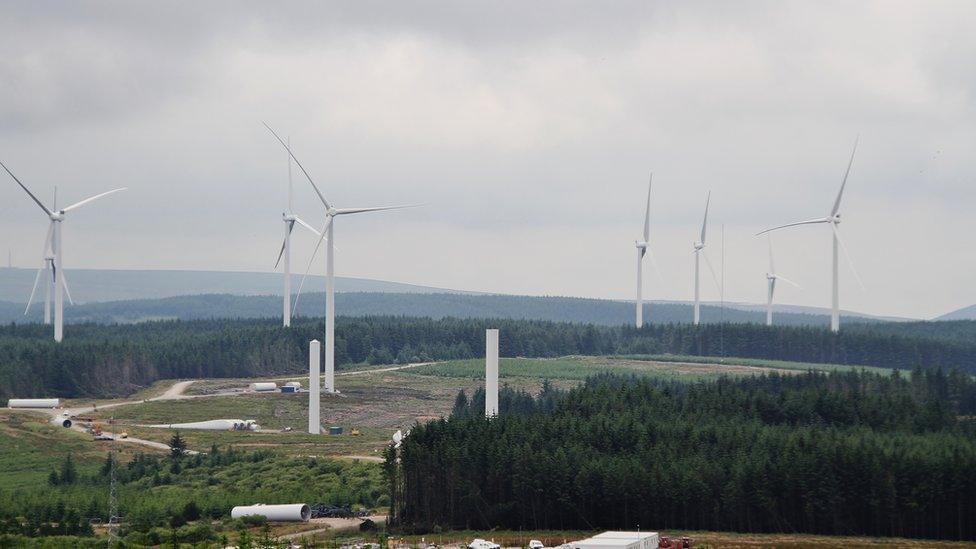
Renewable energy generation capacity in Wales is more than twice the UK average
The statement also claims that community energy schemes being development by local authorities and community groups, such as solar rooftop projects in fuel-poor areas, are unable to attract investment.
Energy generation from renewable sources has trebled in Wales since 2010, producing 32% of all electricity used in the country in 2015.
The Welsh Government is aiming to hit 70% by 2030.
But the groups allege that a lack of financial support from Westminster is threatening the sector's growth in Wales, and that "excluding the most affordable technologies from market mechanisms makes little sense".
The current system, they claim, does not take into account the wider social and economic benefits that renewable energy developments provide, focusing purely on bill-payers.
Ms Griffiths has previously called for powers over subsidy payments for energy schemes to be devolved to the Welsh Government.
"We call on the UK Government to enable onshore wind and solar technologies to compete in the Contracts for Difference mechanism to reduce overall costs and enable the continued renewable deployment needed to meet the UK's legally binding decarbonisation goals."
A Department of Business, Energy and Industrial Strategy spokesperson said its new clean growth strategy, external would ensure the UK remained a global leader in the move towards a low carbon economy.
"Since 2010, the UK has invested more than £52bn in renewable energy and just last month, we confirmed that up to £557m would be made available for future clean power auctions.
"Our successful, competitive approach to providing support for renewables has led to a significant fall in the cost of clean electricity by as much as 50% with five Welsh clean electricity projects already receiving support, external."
- Published14 December 2016

- Published7 September 2015
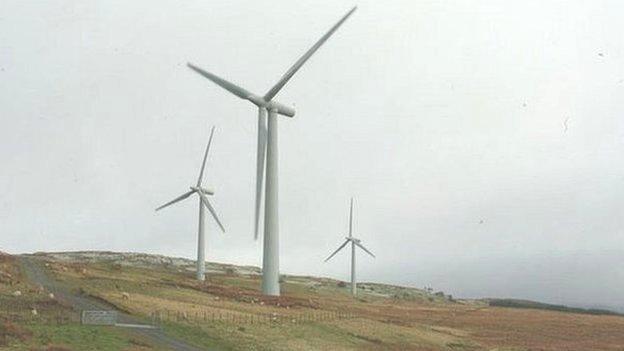
- Published26 September 2017
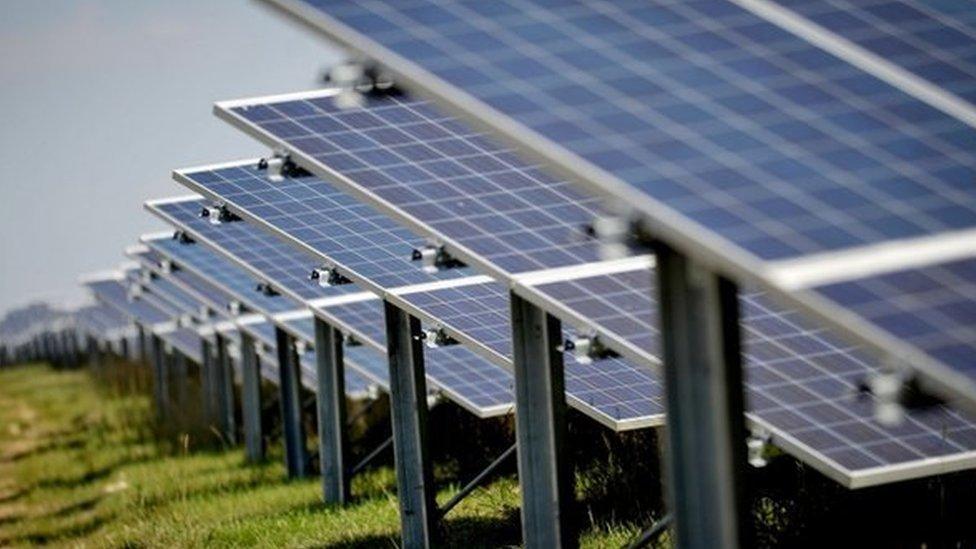
- Published29 June 2017
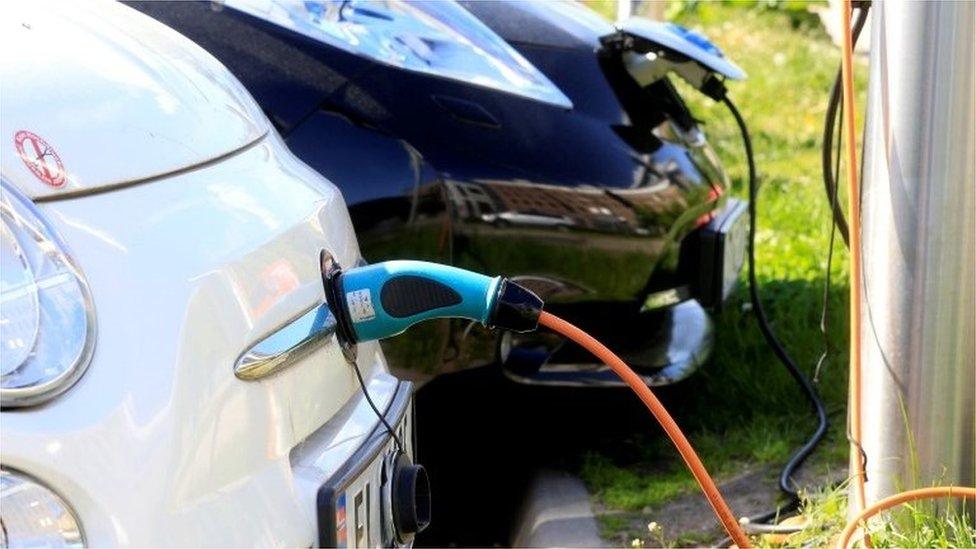
- Published14 October 2016
